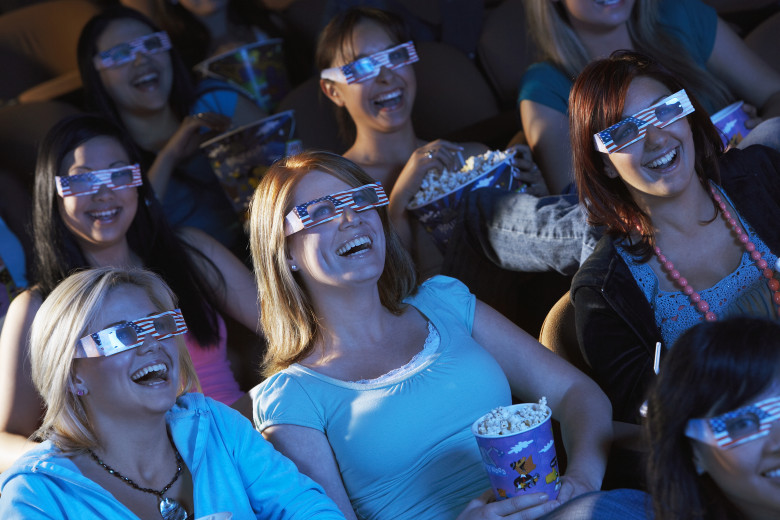Magnolia Pictures
By Andrea Thompson
In the simplest of terms, as defined by Britannica, color is the aspect of any object that may be described in terms of hue, lightness, and saturation. But how do we define how it defines us? How do we describe a phenomenon which so casually evokes a range of reactions and emotions to those who, for whatever reason, have never encountered it? How do we define what defines us, especially when it’s so intertwined in our lives we practically forget it exists?
Apropos for a film that takes such a concept into its very title, “Blue Jean” is above all evocative - of feeling most of all. The Jean of the title (played with tenderly compassionate vulnerability by Rosy McEwen) is a woman who is living what can be simply defined as a closeted life. It’s a phrase tossed off so casually, often even humorously, that we can forget what it really encompasses to have to hide the most loving, and thus often best part of yourself, from others, sometimes in plain sight.
Blue isn’t merely the film’s aesthetic of choice which winds its way through Jean’s life as she attempts to reconcile her precarious balancing act, at times it literally cradles her in her arms. Her bathroom is wrapped in blue, and of course, much of her wardrobe is various shades of it, the various settings gorgeously rendered by cinematographer Victor Seguin incorporate it, and the student uniforms during gym at the secondary school where Jean teaches are also sky hued.
It’s easy to see how another film could take a lesbian gym teacher and embrace what has long become a kind of running joke. But Jean is working and living in Newcastle in 1988. It’s relatively small, conservative, and a world away (on the other side of the country really) from the more metropolitan London, when Margaret Thatcher’s government is about to pass a law criminalizing homesexuality. Nothing funny about it.
It is, in essence, easy to get the blues, living as Jean does in a time when her very existence is seen as an offense. No wonder her more out and proud girlfriend Viv (Kerrie Hayes) uses the phrase deer in the headlights to describe Jean at one point. So what then, can a life look like?
For Jean, it can actually look pretty good, as long as nothing changes. She is mostly uninterested in joining her coworkers for a pint with their talk of pairing her up with a guy, SlimFast diets, and their general agreement with the reports that extol thinking of the children whenever anyone rebels against the concept of gay people as a threat to society. She’d rather head out to the warm vibes of the lesbian bar she frequents, where she’s earned the nickname Baby Jean, and enjoy some good sex with Viv, who is quick to push back against her girlfriend’s own internalized homophobia.
But no cerulean shield will be enough when Lois (Lucy Halliday), one of Jean’s students, becomes a frequent attendee at the local lesbian bar and of course, recognizes her teacher. Suddenly, the microaggressions become harder to take, from her supposedly supportive sister who still keeps Jean’s wedding picture on her mantle and all but clutches her pearls at the thought of her five-year-old son being introduced to Viv as Jean’s girlfriend, the neighbor across the way whose coldly hateful gaze has all the wrath of an auto-da-fé, to the dating shows where women are asked to be appropriately feminine enough for whatever random man is chosen as the catch of the night.
As Drew Burnett Gregory wrote in her Autostraddle review of the film, “‘Save the children’ is just about the easiest manipulation tactic those who want us dead can use.” It’s an apt summary of how concern is so often weaponized to the detriment of all, including nearly every life writer-director Georgia Oakley chronicles, however briefly, in “Blue Jean.” A queer woman herself who was born in 1988, Oakley so compassionately depicts her subject and the way she at times fails the very people who need her most it’s occasionally difficult to believe she didn’t live out the period and the havoc it left in its wake, which is threatening to repeat itself, and in some cases already is.
The thing about the color Oakley chooses for her metaphor though? It tends to always be there, waiting for those to acknowledge its presence. It’s the color of the sea and sky, some of our most common trouser choices, and it can also be indicative of how warm it can be when we find a communal safe space that lends it support.














